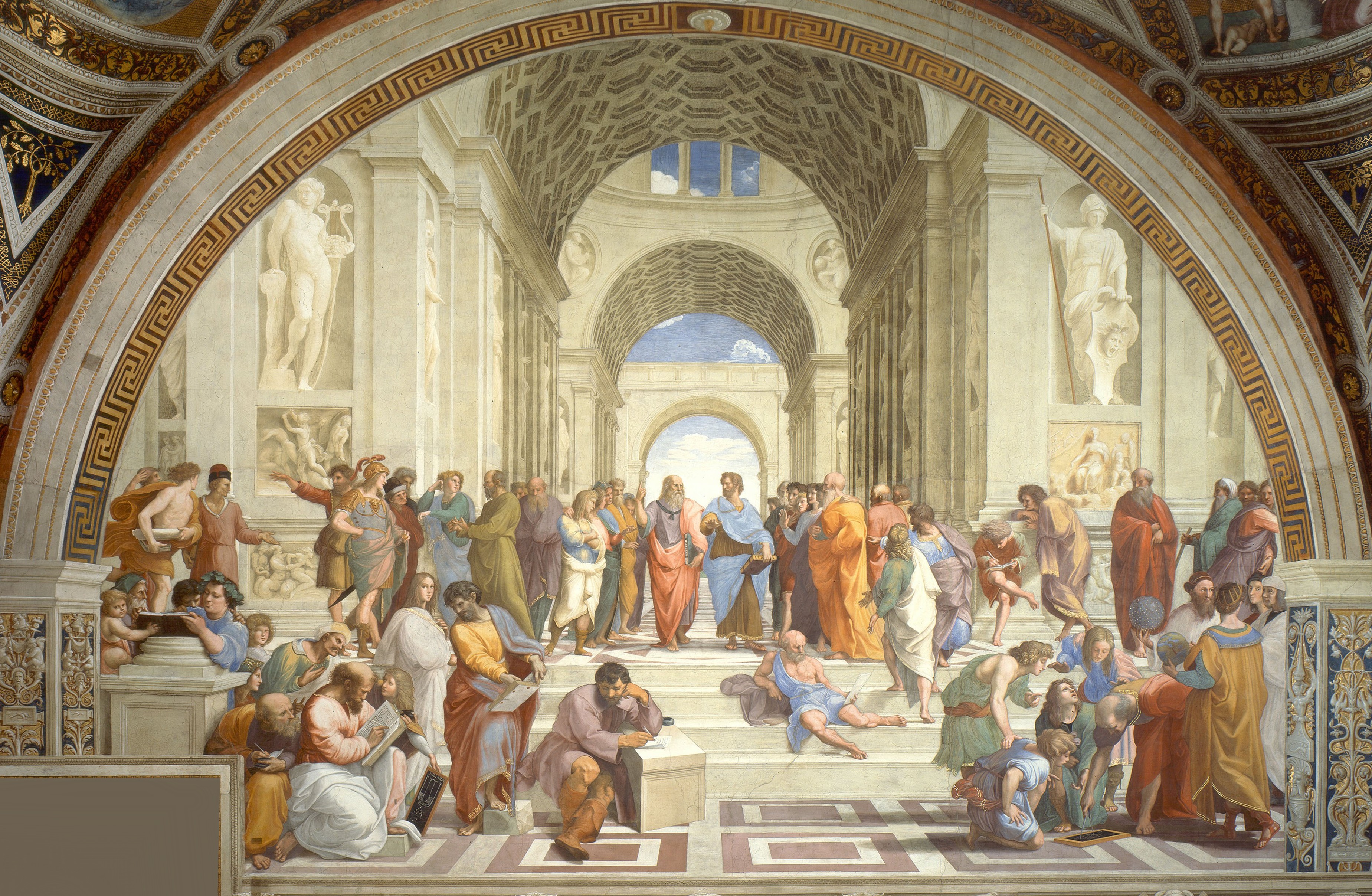Raphael, School of Athens, 1511
Forbe's cites Michael Oakeshott in an article on the necessity of intellectual diversity ...
[Liberal education] is a somewhat unexpected invitation to disentangle oneself from the here and now of current happenings and engagements, to detach oneself from the urgencies of the local and the contemporary, to explore and enjoy a release from having to consider things in terms of their contingent features… [It is] an invitation to be concerned not with the employment of what is familiar but with understanding what is not yet understood.
Continuing, an offering of Heterodox Academy's solutions to The Problem ...
Constructive Disagreement occurs when people who don’t see eye-to-eye are committed to exploring an issue together, acknowledging their own fallibility and the limits of their knowledge — and open to learning something from others who see things differently than they do. Learning from our differences, and modeling how to engage despite them, is the foundation of healthy academic practice, and indeed of democratic society itself.Colleges and universities face a number of challenges in fostering constructive disagreement:
- Many students, faculty, and staff lack sufficient training in how to constructively engage across difference — especially as it relates to fundamental ideological commitments.
- Constructive disagreement is a skill that must be refined through real-world engagement, but due to the aforementioned deficits within institutions today, many students lack opportunities to meaningfully and charitably engage with underrepresented perspectives.
- Many professors who are concerned about this problem don’t know where or how to begin introducing missing perspectives, as they often do not have a solid foundation in them either.
- Many academic contexts, from class discussions to academic research, incentivize competition in a way that can be counterproductive to learning and growth. It often seems easier to build a reputation by attacking others than by seeking opportunities for mutual growth and collaborative discovery among people who seem to be on opposing sides of an issue.
- The political culture in the United States is highly polarized and increasingly toxic. In such an environment, differences of opinions are often attributed to moral or intellectual defects, with people easily branded as sellouts or traitors for engaging across the aisle.












































































































































































No comments:
Post a Comment